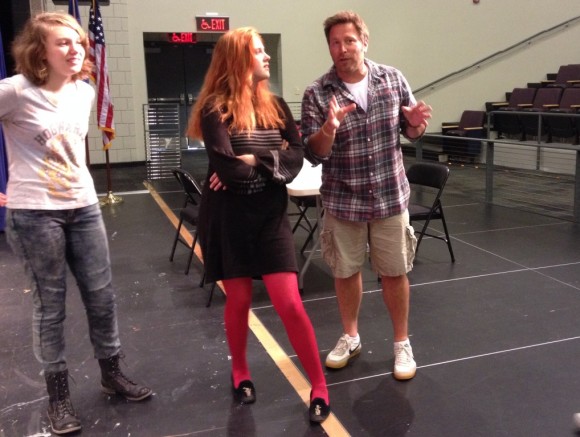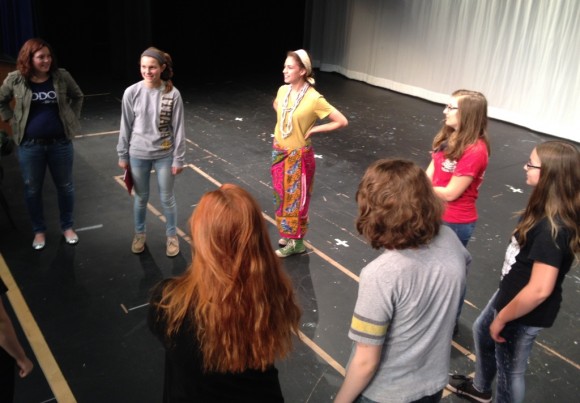
This year the Lyme-Old Lyme High School fall play will be “Letters to Sala.” The performances will take place at 7:30 p.m. in the high school auditorium on Friday and Saturday, Nov. 14 and 15, with an admission price of $7, or $5 with a canned good.
LymeLine.com has received an exciting update to the performance details as follows:
Henny Rosenbaum Simon, an 89-year-old survivor of three camps and Ben Cooper, a liberator of Dachau, will be attending the Saturday performance.
Following the show, they will share some of their stories, and Cooper is going to bring some of the artifacts he has collected over the years. He is a wonderfully engaging speaker and the items he has to share (e.g., his army jacket to match the one in a photo of himself at age 19, or the 20 foot Nazi flag taken from a building), are both chilling and fascinating.
“Letters to Sala” is a true story about a woman “sharing her past with her family” through letters that she wrote while in a labor camp during World War II, according to Brett Eckhart, the director of the play, who also teaches in the history department at the high school. Eckhart says he “came across [the play] by accident” while “sifting through some [play options] online.” He chose the play because students had asked for a more dramatic piece, rather than his usual comedic selections. Being a history teacher, Eckhart says he just, “fell in love with the story,” which is based on real life.
The play details the “trials and tribulations of a young lady in the Holocaust,” comments Eckhart. Sala is an old woman by the time she divulges the letters to her daughter, Ann, and her two granddaughters, Caroline and Elizabeth, so the play takes place in both the modern day and the 1940s during World War II. Eckhart wants “Letters to Sala” to “shed light on labor camps,” which were not like the well-known concentration camps.
“Not many know about the labor camps, which were instituted during the war,” says Eckhart. Operation Schmelt, which began at the start of World War II, involved the creation of 177 different labor camps around Nazi Germany and its allies so that those countries were supplied with people to sew uniforms and complete other menial tasks for the soldiers. In the labor camp, Sala, along with the other workers, was allowed to send and receive mail until 1943.

Eckhart wants the performance to be “educational as well as entertaining” and has reached out to local survivors of the war and also children of survivors to attend the performances and speak to the cast, so that they might gain insight in to what life was like at that time. At the end of each performance, a screen will come down in front of the stage, and Eckhart will show pictures of the real Sala and her family, as well as other labor camp workers whom Sala knew.
“Letters to Sala” is based on a book titled, “Sala’s Gift,” written by Ann Kirschner, Sala’s daughter, as well as the true accounts that Sala gave her daughter and grandchildren when she showed them the letters. Anne donated the letters to the New York Public Library, which currently has the letters on show in an exhibition in their building. The Library also has a permanent online exhibition on their website, so that people can view the historical documents from any online location worldwide.
Eckhart concludes, “If the play is done right, the audience will be emotionally drained — in a good way.”
play is at 7.